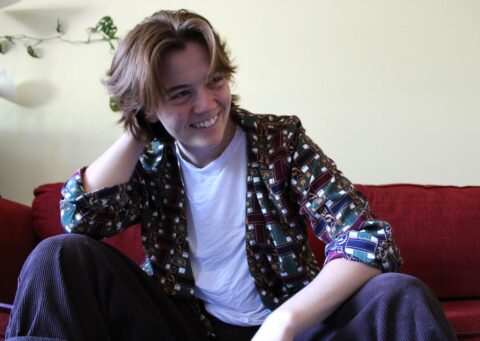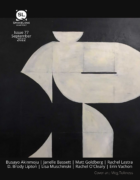I appreciate the reverse-timeline story format here, fiction unspooling for readers like a carrot on a string. How did you settle on this container for your story?
Thank you. Originally, I had written this story chronologically. What I discovered during that stage of editing was that the now-final scene, wherein the narrator screams before Mr. Jacobs, was not nearly as impactful as it is in the final version. With the scream scene set last, the scream represents a frustration with gender constraints, but the inability to perhaps fully understand or vocalize that frustration. Set as the first scene, the scream was just a quirky opening. The story also felt too predictable going chronologically. I wanted there to be the feeling of peeling back the narrator’s layers and for reader to be misguided in terms of the narrator’s gender at first. I wanted there to be a reorientation for the reader so that they could perhaps sympathize with not only the narrator’s gender journey, but with Mr. Jacobs’s unintentional misgendering as well.
This relationship seems to be a defining one for the narrator. Is Mr. Jacobs acting the part or going out of their way to not recognize and misgender the student? Since we never hear from the student following this climatic exchange, what does this ambiguity lend to the narrative?
On its own, iii. feels somewhat mundane, so I find it interesting that you call it climactic. I appreciate this, because only after having read the whole story does this first scene serve as the climax. I think the ambiguity of this scene frees the narrator from being definitive on their gender. I didn’t want to say that the narrator was indeed a man, or was non-binary, or was a woman, I just wanted them to be free of gender, despite the obvious role that it plays. Unfortunately, as we see with Mr. Jacobs’s misgendering, you can never really be free of how others interpret your gender.
There is a tacit genre acknowledgment of roles here, played by characters throughout the fiction, almost as if they are performing in a stage or scene rehearsal. PAST STUDENT, PARTY GIRL, HIGH SCHOOL ENGLISH TEACHER, PRETTY THING, these meta roles, in conjunction with references to Emma Watson, Toni Collette, etc, and “Hollywood locks” seem observed through a drama or movie lens. Did your character study this subject in college? What are their top ten movies of 2022? Favorite courses?
I’d guess the narrator is probably an English graduate who took some sex and gender courses that really stuck with them. I took a few sex and gender classes myself and found the idea of gender roles and social scripts especially interesting. Most of the roles which are emphasized in the piece are gender roles (PARTY GIRL, PRETTY THING, etc.). There are gendered scripts and behaviors that are associated with these roles which the narrator feels constricted by (like the hooking arms at a party, the girl-at-a-frat-party drinking, the short skirts at school), hence their interest in the boyfriend and his behaviors which the narrator hadn’t had the freedom of engaging with in high school. These types of social scripts are almost dramatic in the way they’re pre-written, like an actor saying lines. We’ve all experienced this with the “How are you,” “good, how are you,” interaction we have with acquaintances or coworkers. The PAST STUDENT and ENGLISH TEACHER roles also have scripts associated with them (maybe a subtle acknowledgement with a nod at the grocery store, or a wow! Long time no see!-type of interaction), but because the narrator doesn’t fit their past gender role, they fail to perform this teacher-student social script as well. Perhaps if the narrator had been dressed more femme, there would have been a recognition of that script. As far as top ten movies of 2022? The narrator probably watches reality TV instead of movies and points out every problematic interaction. They probably love to make fun of the hypermasculine men but find themselves being a tiny bit jealous of the bros’ ease with masculinity, too.
Can you share the question about Pygmalion which the narrator stayed after class to ask?
Maybe something along the lines of “Isn’t this type of student-teacher relationship inappropriate?” Or maybe “Why can’t she just keep her old accent? I thought it was cool.” But probably just, “Hey, Mr. Jacobs. What was the homework again?”


